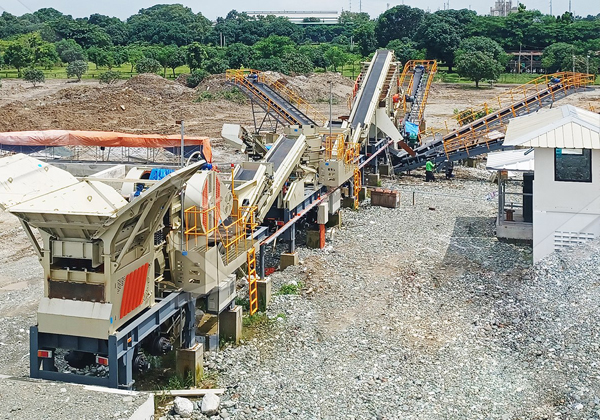In Indonesia, like many developing nations experiencing rapid urbanization and infrastructure development, the demand for construction aggregates is surging. These aggregates, comprising crushed stone, sand, and gravel, are fundamental materials in building roads, bridges, and other infrastructure. At the heart of this process are aggregate crushers, which play a crucial role in producing the necessary materials to fuel construction projects across the archipelago.

The Importance of Construction Aggregates: Construction aggregates are the cornerstone of infrastructure development, providing the foundation for roads, buildings, and various civil engineering projects. In Indonesia, a vast and diverse country comprising thousands of islands, the need for robust infrastructure is paramount for economic growth, connectivity, and societal advancement.
Aggregate Crushers: Backbone of Infrastructure Development: Aggregate crushers are specialized machines designed to break down large rocks into smaller, more manageable sizes suitable for construction purposes. These crushers utilize various mechanisms such as jaw crushers, cone crushers, and impact crushers to achieve the desired size reduction. In Indonesia, the deployment of efficient and reliable aggregate crushers is instrumental in meeting the escalating demand for construction materials.
Types of Aggregate Crushers:
- Jaw Crushers: Known for their robustness and versatility, jaw crushers are commonly used in primary crushing operations. They excel at breaking down hard and abrasive materials, making them indispensable in aggregate production plants across Indonesia.
- Cone Crushers: Ideal for secondary and tertiary crushing stages, cone crushers are adept at producing finely crushed aggregates. Their ability to produce uniformly shaped aggregates makes them valuable in applications requiring high-quality materials, such as asphalt and concrete production.
- Impact Crushers: Widely used for shaping and refining aggregates, impact crushers are effective in producing cubical particles with superior gradation. In Indonesia, where stringent specifications often govern aggregate quality, impact crushers play a vital role in meeting these standards.
Environmental Considerations: While aggregate crushers are essential for infrastructure development, their operations can have environmental implications, including noise and dust pollution, habitat disruption, and energy consumption. In Indonesia, balancing the imperative for infrastructure growth with environmental sustainability is a critical challenge that necessitates adopting technologies and practices to mitigate these impacts.
Technological Advancements: The advent of advanced technologies has revolutionized aggregate crushing operations, enhancing efficiency, productivity, and sustainability. Innovations such as automation, remote monitoring, and energy-efficient designs are increasingly prevalent in Indonesia’s aggregate industry, driving improvements in both environmental performance and operational effectiveness.
In Indonesia, the construction aggregate sector is poised for continued growth, driven by the nation’s ambitious infrastructure agenda. Aggregate crushers stand as the linchpin of this growth, facilitating the production of essential materials needed to realize Indonesia’s development aspirations. By embracing technological advancements, addressing environmental concerns, and fostering collaboration, Indonesia can harness the full potential of its aggregate resources to build a resilient and sustainable future.
